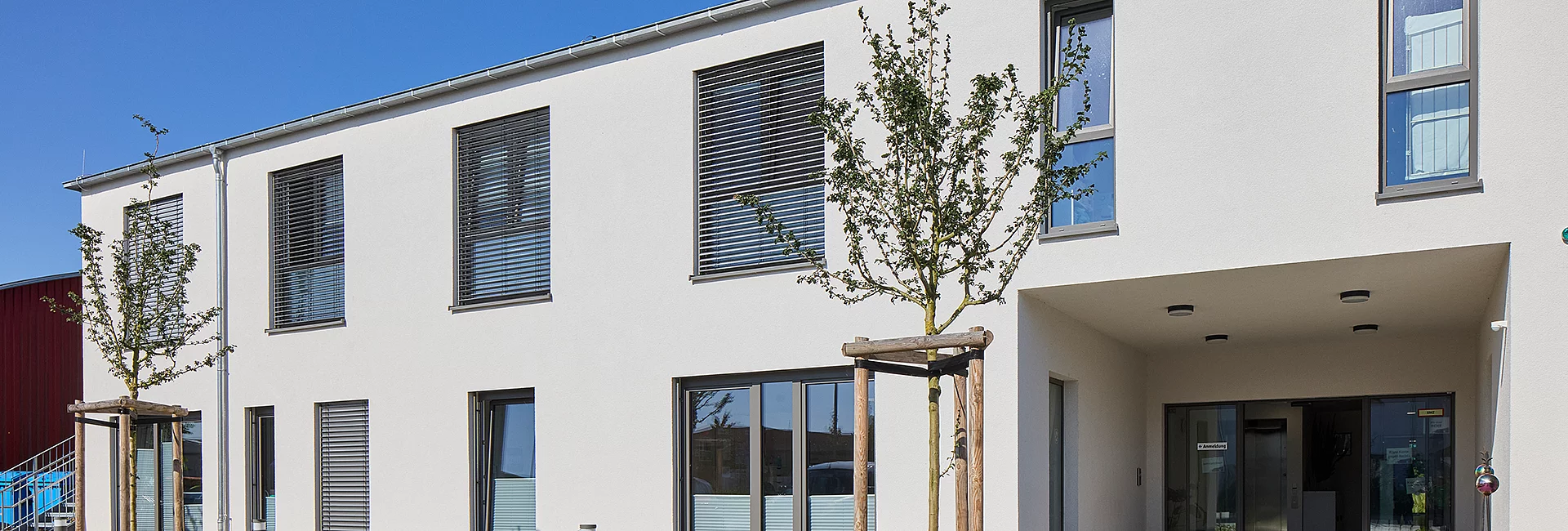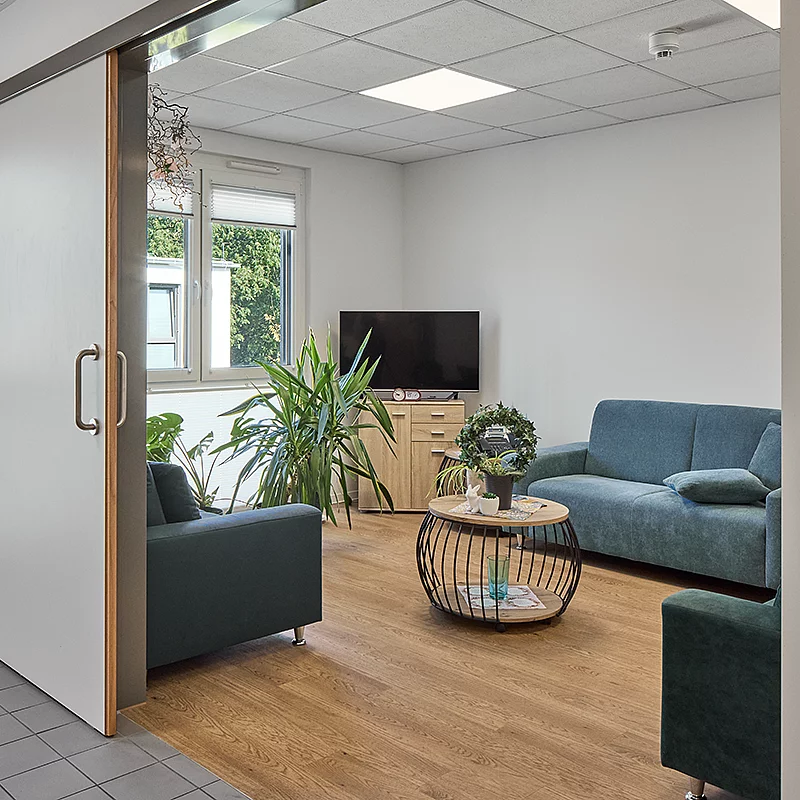Modular construction as an optimal solution for residential accommodation
In recent years, modular construction has established itself as a particularly suitable form of construction for residential accommodation. The principle is clear: prefabricated room modules are produced in a factory under controlled conditions and then assembled on site to form a finished building. A decisive advantage is the significantly shorter construction time. While the foundations are being prepared on site, the modules are being produced in the factory at the same time. This means that residential buildings can be ready for occupancy within a few months: a decisive factor when there is a need to act quickly, for example in the event of rising student numbers, unexpected refugee movements or seasonal staff requirements.
The flexibility of the floor plan design is another plus point. With the modular construction method, compact single flats as well as spacious family flats or multi-bed rooms can be realised. Communal rooms, offices and service areas can also be integrated. The modular structure also allows buildings to be extended or remodelled at any time without having to interrupt the existing use.
Quality and durability are also convincing. Industrial production guarantees precise execution, consistent construction quality and the fulfilment of high energy and fire protection standards. Modular buildings are fully eligible for planning permission and can be used both temporarily and permanently.
For building owners, this means not only fast and reliable realisation, but also economic planning. Standardised processes reduce the cost risk, and the possibility of subsequent expansion or conversion creates long-term flexibility. Modular construction therefore offers a future-proof basis for residential accommodation that can adapt to changing social and economic conditions.

